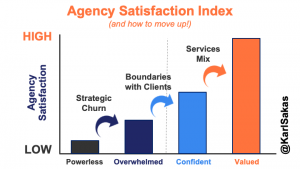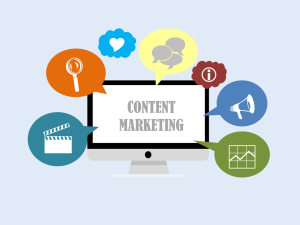Have you ever wondered why you enjoy reading some emails, why you think that others are just a little too boring—and might even be considered “spam”?
Well, maybe it’s because of the fact that some emails just do not use the right words. After all, if you’re trying to get your point across, you have to make sure that you get the other person’s attention right away, especially because these days, people always try to maximize their time—and they don’t want to wonder what’s going on—they want to know right away.
As you can see, I have somehow explained my point already. Just imagine if I stopped at “spam”, and “make sure that you get the other person’s attention right away”. Would you know why I actually said those words? Maybe, you’d have an idea. But, you wouldn’t really understand what I am trying to say.
Therefore, it would be safe to say that the word “because” really makes things clearer. Somehow, it gives the message some depth; it makes you feel like there is actually a purpose, and that the person you’re talking to isn’t just blabbering about things for no reason at all.
Making It Personal—and Why It Matters
Research has it that these days, personalization matters in the world of email marketing. According to Argus Leader, a Garnett Subsidiary Business Journal, a data-driven direction would be essential in 2016, which means that you should try to craft your emails in such a way that they would create revenue.
This is because:
- There is a 4,300% Return on Investment (ROI) that emails yield for U.S. businesses.
- As compared to Facebook and Twitter, emails give 40 times more conversion rate!
- Around 91% of consumers use smartphones to check emails regularly—which means you have to try to get through to them as much as you can.
- When you send relevant emails, you get at least 18 times more revenues, as opposed to sending mass-market emails.
- Around 66% of consumers are enticed to make direct purchases after reading attention-grabbing emails.
In short, you have to find ways to make sure that the emails you send are actually not spammy—and that they would make the consumers feel as if you understand them, and that you’ll be able to give them what they want!
For example, I sent out different emails in different contexts using the “because” approach. It is amazing to note that a positive response came back in all of the instances.
Here are some of the examples, taken and presented here as a screenshot for reading convenience.
CASE 1. The context of the email was for an infographic about “Why Good Health is an Important Ingredient for a Happy Retirement”
The Response:
CASE 2: The second email outreach pitch was about a group expert interview
The Response:
What Needs to Be Done—and Why You Need to Do It NOW
- Start timing your messages. First things first: know what your target demographic is—and time your messages based on when you know your prospects are actually going to read emails. For example, young urban professionals mostly read emails early in the morning before going to work, while housewives probably read them at night—once they’re done with their jobs at home. When you time your messages, you create revenue—and it’s because you tried to understand your audience, and you made them feel that you’re on their side!
- Make them understand why. Suppose you’re selling a pen. There are so many pens in the world, right? So, now, how do you think you will be able to sell those pens of yours? Well, you need to make sure that you say something special about it—or something that would make the consumers feel like they need to have this pen right now. For example, say that it does not make fingers hurt, or that it’s made with top-grade ink that’s perfect for long, handwritten letters, and calligraphy-like penmanship. You see, that is so much better than saying you’re just selling a pen—because now, the consumers would know what those pens entail for them!
BECAUSE Makes a Whole World of Difference
A study done in the University of Northern Illinois, led by Dr. Scott Key, showed how people reacted differently to someone asking to use the copy machine before them, even though they were first in line.
When the person said “Can I use the copy machine before you?” around 61% said yes, and some of them were even irritated due to the fact that they have no idea why this person actually needs to use the machine before them.
However, when the person said “Can I use the copy machine because I’m in a rush and my boss would really be mad if I don’t finish this right away?” around 89% of people allowed the person to cut in line and go first. Why? Well, simply because he has already created a sense of urgency and empathy that people started feeling for him. They start putting themselves in his position, and therefore, get to understand that helping him is something they need to do—and that’s the same with your emails: help people know what’s going on, and they may really respond to it well.
Provide Viable Reasons—and Those Emails Would Prove to Be Successful!
According to Robert Cialdini, author of the classic email marketing book Influence, it is natural for humans to help others out when the person asking for help provides a viable reason, with a persuasive copywriting word (“because”). Give people reasons as to why they should respond, and don’t just leave everything hanging. Not everyone is a psychic. Don’t make them feel as if they have to guess what you’re trying to say—no one has the patience for that!
Try It—and Let Me Know What Happens
There is now no doubt about it: Because is one of the most powerful worlds in the universe. It gives reason. It justifies. It creates good outcomes. It makes people understand why they’re meant to give their attention to what you’re trying to say. See how one word is able to change things in a large-scale manner?
Now, try to add that word in your emails. Create a pitch that you know would get people’s attention. Then, get back to me and tell me how exactly the word because helped you—because you know this is something that will help you gain revenue!
Digital & Social Articles on Business 2 Community(109)
Report Post












